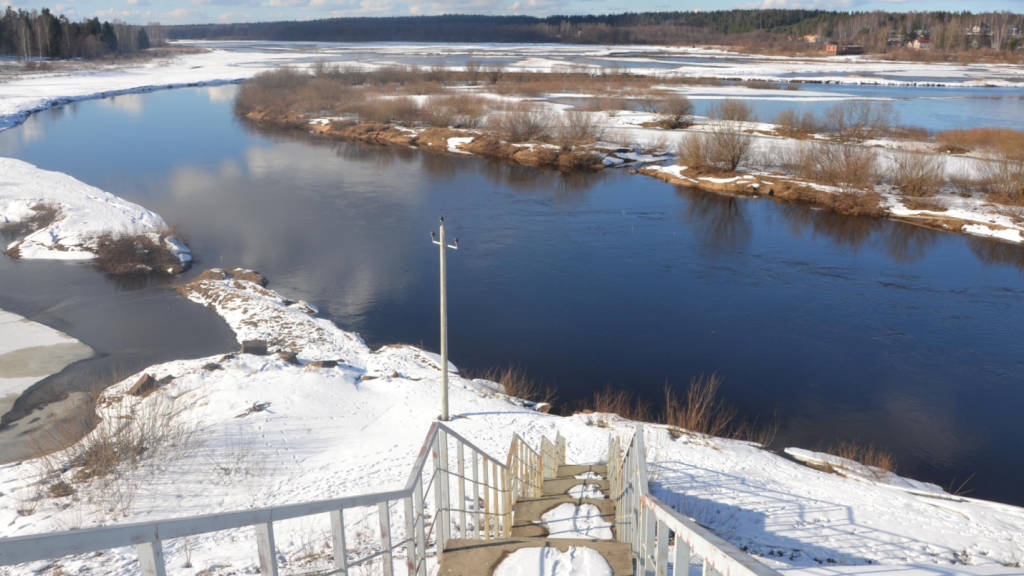Cooperation in the Leningrad Region for the healthy Baltic Sea
Cooperation in the Leningrad Region for the healthy Baltic Sea
The Leningrad Region is one of the key territories of the Russian part of the Baltic Sea catchment, in view of its location, climatic conditions and developed agriculture. Given its importance in the international cooperation of the Baltic Sea region countries, the Leningrad Region government takes an active part in the implementation of projects and actions aimed at improving the environmental situation, in particular the protection of water resources. Scientific institutions, supervisory bodies and public organizations are actively involved in this activity. An important role in the development of environmental measures is played by international projects implemented in the region under the South-East Finland – Russia CBC Programme 2014-2020 and the Interreg Baltic Sea Region Programme 2014-2020, in particular the current projects are:
The WATERDRIVE project “Water driven rural development in the Baltic Sea Region” aims to make a significant contribution to the rational use of water resources and protection of water bodies. Comprehensive knowledge and information about the selection and use of innovative technologies and methods for managing of water resources in agricultural landscapes will make it possible to evaluate their effectiveness in the conditions of the Leningrad Region and to replicate the most effective for each specific case individually. To date, a number of meetings have been held with interested organizations and agricultural enterprises to select an agricultural catchment area in one of the districts where it will be possible to apply the proposed technologies to the farm drainage system to improve water quality. Joint planning between experts, farms and local stakeholders is the core of the project to establish a local case and implement the chosen measures. The key Russian partners of the Waterdrive project in the Leningrad Region are: Northwest Research Institute of Agricultural Economics and Organisation (NWRIAEO) and Institute for Engineering and Environmental Problems in Agricultural Production – branch of Federal Scientific Agroengineering Center VIM (IEEP – branch FSAC VIM). More info
The LUGA-BALT projects “Clean rivers to the healthy Baltic Sea” and “Safe environment and clean waterways to the blue Baltic Sea” protect the Baltic Sea and the Luga River from land-based sources of pollution. The project aims to develop key measures to improve water quality and restore the natural biodiversity of the Luga River, which will help to reduce the nutrient load to the Baltic Sea. The project contributes to the development of the Russian-Finnish cooperation at the municipal level, scientific, educational and public organizations, as well as enterprises, to improve the life quality, protect the environment and water sources of the Baltic Sea basin. The project focuses on working with farms, rural settlements and educational schools. More info

The SEVIRA project “Water meets people – learn, act and influence” is dedicated to improving the state of the Gulf of Finland and the rivers flowing into it. The main attention is paid to the tools for assessing, monitoring and modeling the ecological state of transboundary water areas and coastal zones, raising public awareness of problems in this area, and making recommendations for further development. Activities include research on the status of three rivers: Sestra (Fin. Rajajoki), Virojoki and Seleznevka (Fin. Rakkolanjoki). As part of the project, Roshydromet has prepared and published a report on the hydrological and hydrochemical characteristics of the Seleznevka and Sestra rivers for 2019. More info
An important contribution to the recovery of the Baltic Sea is made by the public and public organizations (“Friends of the Baltic”, “Clean Luga” and others). The main activity of public organizations in the Leningrad Region is to assist regional and municipal authorities and farmers in improving the management competency of the environment in rural areas and water bodies, to promote environmental knowledge and responsibility of people, and to initiate and support environmental actions with the participation of all population groups.
Mikhail Ponomarev, NWRIAEO, Eduard Vasilev, IEEP


